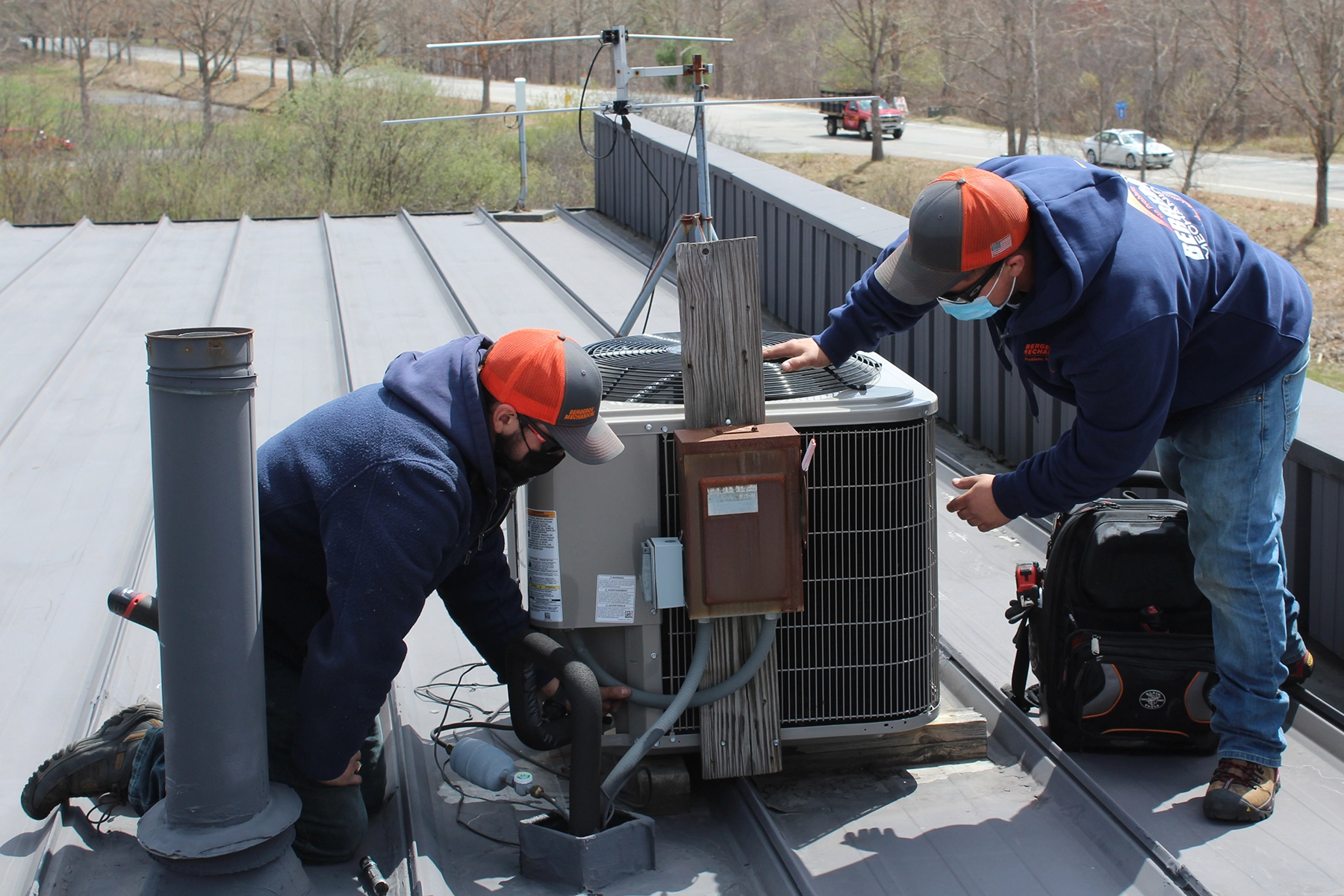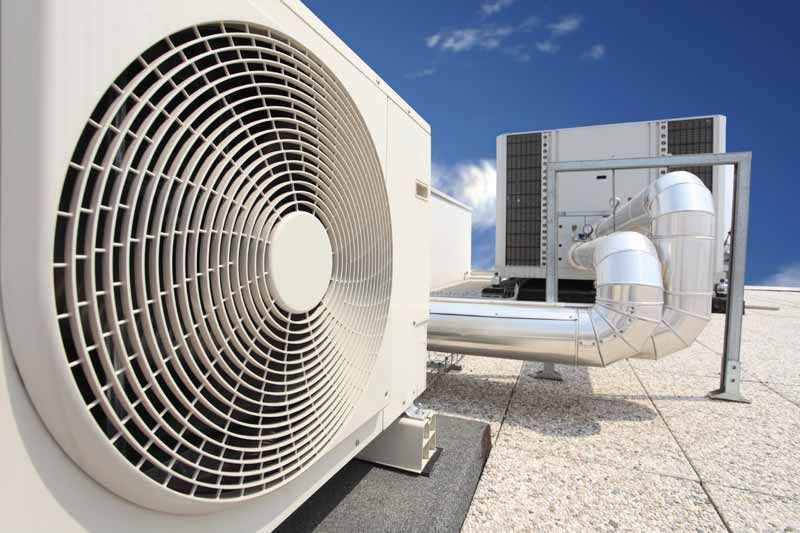The Relevance of A/c Installation: Key Factors To Consider for a Comfortable Indoor Setting
The installation of an A/c system is an essential part in attaining a comfortable and energy-efficient interior atmosphere. Elements such as the suitability of the system for details structure requirements, proper sizing to prevent inefficiencies, and the expertise of service providers for a quality installation play crucial roles. The fostering of innovative modern technologies can considerably improve system efficiency.
Selecting the Right System

When choosing a HVAC system, it is crucial to examine the capability needed to successfully warmth or cool the room without overworking the system, which can cause raised wear and operational expenses. Consulting with a professional HVAC service provider can offer useful insights right into picking a system that straightens with both the architectural style and the awaited use patterns of the building.
Furthermore, considering the integration of wise technology can enhance system administration and tracking, using higher control and potential price savings. By diligently analyzing these aspects, one can make certain the selection of an a/c system that not only fulfills prompt needs however likewise adds to lasting operational sustainability and occupant convenience.
Recognizing Power Performance
Understanding energy effectiveness is crucial when thinking about an A/c installment, as it directly impacts both the environmental impact and the functional prices of the system. The efficiency of a Heating and cooling system is normally shown by ratings such as SEER (Seasonal Energy Effectiveness Proportion) for air conditioners or AFUE (Yearly Fuel Use Performance) for heaters.

Purchasing an energy-efficient heating and cooling system not only translates to cost financial savings however also adds positively to environmental preservation by lowering greenhouse gas emissions. In addition, numerous territories offer rewards or discounts for the setup of high-efficiency systems, even more boosting their monetary charm.
When assessing energy performance, take into consideration advanced features such as variable rate motors, clever thermostats, and zoning capacities. These developments boost the system's ability to readjust to varying need, thus maximizing energy usage. It is essential to seek advice from with a/c professionals who can give insights into the best choices customized to specific environment conditions and use patterns, ensuring optimal performance and comfort.
Value of Proper Sizing

On the other hand, an undersized heating and cooling system will battle to reach the desired temperature level, especially throughout extreme climate condition. This can lead to continual procedure, bring about greater energy prices and prospective overheating of system parts. Furthermore, poor sizing can cause inconsistent temperature level distribution, creating specific areas of a structure to be too cozy or as well awesome.
To attain the right sizing, an extensive lots computation is essential. This includes assessing different factors such as the structure's square footage, insulation levels, home window types, and regional environment conditions. By precisely determining the home heating and cooling down needs of an area, HVAC experts can advise systems that guarantee reliable operation, decreased power consumption, and improved interior convenience.

Guaranteeing Top Quality Installment
A smooth HVAC installation is the cornerstone of a system's durability and efficiency. Making certain high quality setup includes careful interest to information, adherence to sector criteria, and using skilled professionals. The procedure starts with picking a seasoned and qualified heating and cooling professional. This professional should have comprehensive expertise of varied systems and be skilled at examining the certain needs of the building.
Appropriate setup exceeds plain placement of equipment. It entails accurate calibration to ensure optimum air flow, efficient power consumption, and consistent temperature circulation. This includes exact ductwork setup, ensuring links are safe and leak-free, which is critical for keeping system efficiency and interior air high quality.
Furthermore, the execution of sophisticated analysis tools throughout setup can identify prospective concerns early, avoiding pricey repair work and expanding the lifespan of the system. The specialist should likewise make certain that all elements work and that the system follows local structure codes and laws.
Regular Upkeep Practices
When the structure for a high-performing cooling and heating system is developed via quality installation, the emphasis needs to change to regular upkeep techniques to ensure continued efficiency and reliability. Regular upkeep not just expands the life-span of the system yet additionally boosts interior air high quality, minimizes energy usage, and avoids costly repair work. Vital maintenance tasks consist of routinely changing air filters, cleansing evaporator and condenser coils, and evaluating the system for obstructions or leaks.
This easy job can heating ventilation and air conditioning significantly improve air circulation and system effectiveness. In addition, expert specialists need to examine the system every year, examining for refrigerant degrees, electrical links, and total system efficiency.
Focus to ductwork is also important; securing and cleaning ducts regularly stops air loss and contamination. Applying an upkeep routine makes certain that minor problems are resolved before Read Full Report they escalate, protecting the system's operational stability. By adhering to these upkeep techniques, homeowners can enhance their a/c system's capability and maintain a comfortable interior setting year-round.
Verdict
By choosing an appropriate system customized to specific structure demands, comprehending energy efficiency, and guaranteeing appropriate sizing, inefficiencies can be minimized. The participation of experienced service providers assurances top quality installation, while the combination of innovative technologies boosts system performance and tracking.
Numerous types of HVAC systems are offered, consisting of split systems, hybrid systems, duct-free systems, and packaged home heating and air systems, each with distinctive advantages and restrictions.
Understanding energy performance is vital when taking into consideration a Heating and cooling setup, as it straight impacts both the environmental footprint and the operational expenses of the system. The effectiveness of a Heating and cooling system is commonly indicated by ratings such as SEER (Seasonal Energy Efficiency Ratio) for air conditioners or AFUE (Yearly Gas Utilization Effectiveness) for heaters (Brownwood TX HVAC Contractor).Once the foundation for a high-performing A/c system is developed through quality installation, the focus should shift to normal upkeep techniques to ensure continued efficiency and reliability. Furthermore, expert specialists must check the system each year, examining for cooling agent levels, electrical links, and total system efficiency